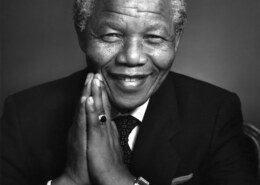“I see democracy as a system that affords the weak and the powerful equal opportunities.” Gandhi Mahatma (150 words)
Model Answer Introduction Plato's quote, "We can easily forgive a child who is afraid of the dark; the real tragedy of life is when men are afraid of the light," highlights the natural fears of childhood contrasted with the detrimental fears of adulthood. While children may fear the unknown, it is tRead more
Model Answer
Introduction
Plato’s quote, “We can easily forgive a child who is afraid of the dark; the real tragedy of life is when men are afraid of the light,” highlights the natural fears of childhood contrasted with the detrimental fears of adulthood. While children may fear the unknown, it is tragic when adults fear knowledge and truth, hindering personal and societal progress.
Body
Ignorance of the Truth
Many individuals fear facing uncomfortable truths, whether about themselves or the world. For instance, climate change denial exemplifies this fear. Acknowledging climate change challenges personal beliefs and requires lifestyle adjustments, leading some to reject scientific evidence (Leiserowitz et al., 2018). This denial stifles progress toward solutions and hampers collective action for environmental sustainability.
Fear of Change
Fear of change often leads individuals to cling to outdated beliefs and traditions. For example, resistance to new technologies in industries can prevent companies from innovating and adapting to market demands. This stagnation limits potential growth and can lead to economic decline as competitors embrace change (Kotter, 1996).
Avoiding Uncomfortable Conversations
Avoiding difficult conversations about politics or social issues can further entrench ignorance. When individuals shy away from discussing contentious topics, they miss opportunities for understanding diverse perspectives. This avoidance can perpetuate societal divides and inhibit progress toward equity and justice (Pew Research Center, 2020).
Refusal to Learn
Lastly, some individuals resist learning new skills or ideas due to a fear of failure or complacency. This mindset can prevent personal development and limit opportunities for growth. Research shows that a growth mindset—embracing challenges and learning from failures—leads to greater achievement and fulfillment (Dweck, 2006).
Conclusion
While fear of the unknown is natural, the refusal to embrace knowledge and change can have tragic consequences. By confronting our fears and seeking understanding, we can grow as individuals and contribute positively to society. Let us strive to step into the light of knowledge and truth.
See less

Answer: Mahatma Gandhi was in favor of a stateless society in which life becomes perfect, people never become hindrances to one one-other's routines, and; self-regulation, self-dependency, and mutual cooperation become essential in day-to-day human practices. Given the issues in trying to create sucRead more
Answer: Mahatma Gandhi was in favor of a stateless society in which life becomes perfect, people never become hindrances to one one-other’s routines, and; self-regulation, self-dependency, and mutual cooperation become essential in day-to-day human practices. Given the issues in trying to create such an order, he supported and advocated democracy. Accepting democracy to be a great institution, Gandhiji laid stress on decreasing the possibility of its misuse. He called for its constant development on the basis of high human values.
Therefore, morality occupies a central place in Gandhi’s conception of democracy. It develops a sense of responsibility in human beings on the strength of which they go forward to protect, respect, and honour the rights of each other. Significance of the given quote in contemporary period In a democracy, we often observe that the rights of the weak are sometimes not honoured. For instance:
The remedy, therefore, is not avoidance of democracy but its constant development.
See less